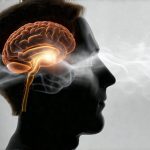Anxiety is often perceived as a mental health condition, rooted in thoughts and feelings of worry, fear, and unease. However, increasingly, research reveals a profound connection between our gut – the complex ecosystem within our digestive system – and our emotional wellbeing. This relationship, known as the gut-brain axis, isn’t simply one-directional; it’s a constant two-way street of communication influencing everything from mood regulation to cognitive function. Understanding this intricate link can unlock new perspectives on anxiety symptoms and potentially open doors to more holistic approaches to managing them. Recognizing that physical sensations aren’t always separate from emotional states is the first step toward appreciating the gut’s role in mental health.
For many, anxiety manifests as racing thoughts, palpitations, or a sense of dread. But for others, the initial signals are strikingly physical, centered around digestive distress. These symptoms can be easily dismissed as irritable bowel syndrome (IBS), food sensitivities, or simply “stress,” but they may be early indicators of a gut-brain connection impacting anxiety levels. The challenge lies in differentiating these symptoms and understanding when to explore the possibility of a deeper link between gut health and mental wellbeing. Ignoring these physical cues can delay appropriate support and potentially allow anxiety to escalate. If you’re unsure about subtle test results that might point to issues, seeking professional guidance is key.
The Gut-Brain Axis: A Two-Way Street
The gut-brain axis is comprised of several interconnected pathways, including the vagus nerve – often called the “wandering nerve” – which directly connects the brain and the gut. This nerve highway facilitates rapid communication between these two organs. Beyond the vagus nerve, there’s also the enteric nervous system (ENS), sometimes referred to as the “second brain,” because it contains millions of neurons within the digestive tract itself. The ENS can function relatively independently but remains in constant dialogue with the central nervous system. This ongoing exchange is critical for regulating digestion and influencing mood and behavior.
The composition of our gut microbiome – the trillions of bacteria, fungi, viruses, and other microorganisms residing in our digestive system – plays a significant role in this axis. These microbes aren’t just passive bystanders; they actively produce neurotransmitters like serotonin (often called the “happy hormone”), dopamine, and GABA, all of which impact mood regulation. In fact, it’s estimated that 90% of serotonin is produced in the gut! An imbalance in these microbial communities – known as dysbiosis – can disrupt neurotransmitter production, potentially contributing to anxiety symptoms. Understanding scan results over time is also important for chronic issues.
Furthermore, gut inflammation, often triggered by poor diet, stress, or antibiotic use, can also send signals to the brain that promote anxiety and mood disorders. The immune system plays a crucial role here, as chronic inflammation can lead to increased permeability of the gut lining (“leaky gut”), allowing substances to enter the bloodstream and trigger an inflammatory response throughout the body, including the brain. This interplay between the gut, microbiome, nervous system, and immune system highlights the complexity – and interconnectedness – of mental health. It’s important to know which symptoms might justify further investigation with imaging.
Recognizing Gut-Related Anxiety Symptoms
Identifying anxiety symptoms that may be linked to the gut can be tricky, as many overlap with typical anxiety presentations. However, paying attention to specifically digestive-related experiences alongside emotional distress can offer valuable clues. Look for patterns where physical discomfort consistently precedes or accompanies anxious feelings. This isn’t about self-diagnosing, but rather about being attentive to your body and recognizing potential connections that warrant further exploration.
Here are some key indicators:
- Frequent bloating and gas: These aren’t just signs of digestive upset; they can be associated with altered gut motility influenced by stress and anxiety.
- Changes in bowel habits: Experiencing diarrhea, constipation, or alternating between the two, particularly when under stress, may signal a gut-brain connection.
- Abdominal pain and cramping: Chronic abdominal discomfort that doesn’t seem to have a clear cause could be linked to visceral hypersensitivity – an increased sensitivity to sensations in the gut.
- Nausea and loss of appetite: Anxiety can often manifest as physical sickness, leading to nausea or a reduced desire to eat.
- “Butterflies” in the stomach: While common, persistent butterflies or intense digestive discomfort during anxious moments are worth noting.
It’s important to remember that these symptoms don’t automatically mean you have a gut-related anxiety issue. They simply suggest it may be worth investigating further with a healthcare professional. Keeping a symptom journal – tracking both physical and emotional experiences – can provide valuable data for identifying patterns and potential triggers. If your gut symptoms don’t match lab results, further testing may be needed.
The Role of Food Sensitivities & Intolerances
Food sensitivities and intolerances, while distinct from food allergies, can significantly impact gut health and potentially contribute to anxiety symptoms. Unlike allergies, which trigger an immediate immune response, sensitivities often involve a delayed reaction that’s harder to identify. Common culprits include gluten, dairy, soy, corn, and artificial additives. These foods may not cause overt allergic reactions but can trigger inflammation in the gut, leading to discomfort and disrupting the microbiome.
When the gut is inflamed, it can send signals to the brain that exacerbate anxiety. This is because inflammation impacts neurotransmitter production and disrupts the vagus nerve communication pathway. Identifying and eliminating food sensitivities – even temporarily – can sometimes lead to a noticeable improvement in both digestive symptoms and anxiety levels. It’s crucial to approach this systematically:
- Elimination Diet: Remove suspected foods from your diet for a period (typically 2-3 weeks).
- Reintroduction Phase: Slowly reintroduce each food one at a time, monitoring for any adverse reactions – both physical and emotional.
- Professional Guidance: Work with a registered dietitian or healthcare provider to ensure you’re getting adequate nutrition during the elimination phase and accurately identifying sensitivities.
Remember that an elimination diet isn’t intended as a long-term solution but rather as a diagnostic tool to pinpoint potential triggers. It’s vital to avoid self-restricting without professional guidance, as it can lead to nutritional deficiencies. Sometimes common scan results can also be misleading and require expert interpretation.
Supporting Gut Health for Anxiety Management
While addressing food sensitivities can be helpful, supporting overall gut health is crucial for managing anxiety symptoms. This involves adopting lifestyle practices that nurture a thriving microbiome and reduce inflammation. Probiotics – live microorganisms found in fermented foods like yogurt, kefir, sauerkraut, and kimchi – can help replenish beneficial bacteria in the gut. However, it’s important to choose probiotic strains specifically suited for your needs and consult with a healthcare professional before starting supplementation.
Similarly, prebiotics – fibers that feed the good bacteria in the gut – are essential. Sources of prebiotics include onions, garlic, bananas, asparagus, and oats. A diet rich in whole, unprocessed foods provides the necessary nutrients to support a healthy microbiome. Stress management techniques like meditation, yoga, deep breathing exercises, and mindfulness can also significantly impact gut health by reducing cortisol levels (the stress hormone) that disrupt the digestive system.
Finally, adequate sleep is vital. Sleep deprivation disrupts the circadian rhythm, which influences gut motility and microbial balance. Prioritizing 7-9 hours of quality sleep each night will contribute to both physical and mental wellbeing. The key takeaway is that a holistic approach – combining dietary changes, stress management, and lifestyle modifications – can profoundly impact gut health and potentially alleviate anxiety symptoms. And when functional symptoms are driving anxiety, it’s important to address the root cause. Also consider if GI tests might be useful in your situation.


















